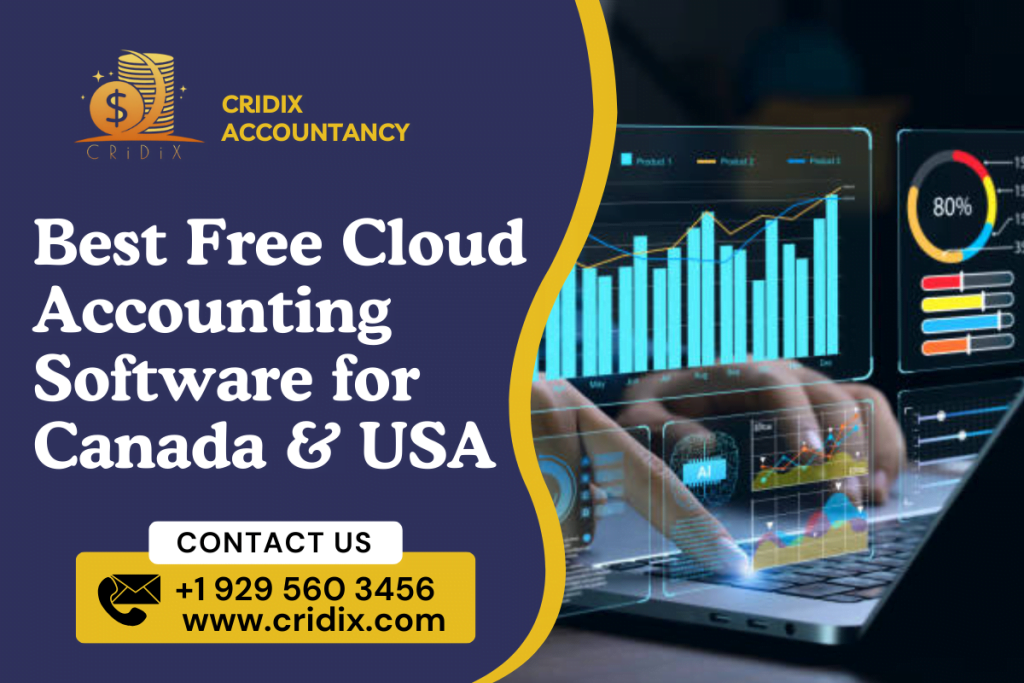Introduction
If your company still depends on desktop software or spreadsheets for accounting, it might be worthwhile to explore the advantages of transitioning to a cloud-based accounting system. Cloud-based solutions offer numerous benefits compared to on-premises alternatives, such as the flexibility for users to work from any location, automation of labor-intensive manual tasks, enhanced accuracy and compliance, and the ability to streamline financial closing processes with reduced effort.

Cloud accounting software has completely changed the way businesses handle their finances. It allows you to access your financial data from anywhere, automates many processes, and provides real-time insights. This is a game-changer for businesses of all sizes. However, with so many options available, choosing the right cloud accounting software for your business can be a bit overwhelming.
What is Cloud Accounting?
Cloud accounting refers to the use of accounting software and financial tools that operate on remote servers (in the cloud) rather than on local computers. In traditional accounting systems, software is installed on individual computers, and data is stored on those devices or a local server. In contrast, cloud accounting services store data on remote servers, and users access the software and their financial information through a web browser.
Cloud Accounting software streamlines tasks like manual data entry and bank reconciliation, also targeting areas like Accounts Payable, and Accounts Receivable freeing up human accountants for strategic roles. The purpose is not to replace humans but to automate repetitive tasks, allowing accountants to focus on high-value activities like financial advice and analysis.

Here are some Benefits of using Cloud Accounting:
In general, the incorporation of cloud accounting significantly improves business efficiency and effectiveness. Cridix specializes in seamlessly integrating AI tools with cloud-based accounting
and bookkeeping solutions. Experience our cost-effective Cloud Accounting and Bookkeeping services for optimal financial management.
Free Cloud Accounting Software for Small Businesses
In today’s dynamic business landscape, small businesses increasingly realize technology’s importance in streamlining their financial processes. Every small business owner is in search of cloud accounting software that offers their services without any subscription fee. Tailored to meet the specific needs of small businesses, these platforms offer a cost-effective and accessible solution for managing finances.

By providing essential features without the burden of large price tags, free cloud accounting software empowers small firms to efficiently handle their accounting tasks, make informed financial decisions, and focus on growth without compromising financial stability. In this, the availability of free cloud accounting solutions has become a game-changer, offering a gateway to improved financial management for small businesses.
Here we discuss some most used free Cloud Accounting software that is needed for a small business to handle their financial tasks.
Wave
Wave Accounting, in a nutshell, is a free and easy-to-use cloud accounting software perfect for freelancers and micro-businesses. Wave Accounting stands out as a well-tested and reliable option on this list. It offers an easy-to-use and intuitive program that requires minimal, if any, training to grasp.

The best part is that its entire set of accounting features is available for free. This includes unlimited tracking of income and expenses, the convenience of managing multiple businesses from a single account, and the flexibility of unlimited bank and credit card connections.
Benefits of Wave’s
Drawbacks of Wave’s
Wave stands out as an easy-to-use and convenient accounting solution tailored for small businesses seeking a straightforward and cost-free method to handle their finances. If you’re in search of fundamental accounting features without the complexity often associated with software, Wave might be the ideal choice for you.
GnuCash
GnuCash, an accounting software that is both free and open-source, puffs a lengthy history and a determined community of users. Although it initially focused on functionalities similar to Quicken, it has developed to provide features well-suited for both personal and small-business accounting needs.

Benefits of GnuCash
Drawbacks of GnuCash
8 Best Ways to Manage Small Business Financial Management
GnuCash is a powerful accounting tool suitable for those who prioritize accuracy and control. It offers advanced features for comprehensive financial management and aligns with users who value open-source software. While it’s a great free solution with plenty of features, be ready for a learning curve. If you’re looking for powerful accounting software and don’t mind investing some time to learn, GnuCash is worth considering.
CloudBooks
CloudBooks is an online accounting software designed for small businesses and freelancers. It offers a range of features, including invoicing, expense tracking, time tracking, and financial reporting. CloudBooks operates in the cloud, allowing users to access their financial data from anywhere with an internet connection. It aims to simplify bookkeeping tasks, enhance collaboration, and provide a user-friendly platform for managing business finances efficiently.
Benefits of CloudBooks
Drawbacks of CloudBooks
Pricing: CloudBooks provides a free plan with limited features, along with paid plans offering various functionalities and user capacities. Its pricing is widely acknowledged as reasonable and competitive within the market.

In summary, CloudBooks stands out as a reliable choice for freelancers and small businesses seeking a straightforward and budget-friendly invoicing and billing solution. With its array of features for efficient finance, client, and project management, it caters well to the needs of these users. However, for those with more complex accounting requirements or a demand for advanced features, exploring alternative options may be worthwhile.
Brightbook
Brightbook is an accounting software solution in the cloud, specifically crafted for small businesses and also for e-commerce businesses. Its goal is to streamline routine financial activities, automate processes, and offer insights to enhance the efficient management of your finances.

Benefits of Brightbook
Drawbacks of Brightbook
Top 7 Benefits Of Automation Accounting | Cridix Accountancy
Pricing: Brightbook’s pricing plans are best for various business needs. The Free Plan suits freelancers with limited features, while the Starter Plan is affordable and covers fundamental accounting tasks. The popular Grow Plan is ideal for expanding businesses, offering VAT reporting and multiple-user access. For larger enterprises, the Pro Plan provides advanced functionalities, including payroll and customizable reports.
Overall, Brightbook is a solid choice for small businesses and freelancers looking for a user-friendly and affordable accounting solution. Its comprehensive features, automation tools, and mobile app make it a valuable tool for managing your finances efficiently.
ZohoBooks
Zoho Books is an accounting software in the cloud, crafted to assist small and medium-sized businesses in their efficient financial management.
Benefits of ZohoBooks
Drawbacks of ZohoBooks

Zoho Books has flexible pricing, starting with a free plan for individuals and affordable options for growing businesses. With features like invoicing and expense tracking, it scales as your business expands. Advanced features are available in higher-tier plans, ensuring your financial tools match your needs without breaking the bank. Whether you’re a solo entrepreneur or a large business, Zoho Books helps you manage finances efficiently.
Zoho Books is a universal and user-friendly accounting solution for small to medium-sized businesses, offering affordability and powerful features. With a mobile app and integrations, it’s efficient for managing finances. However, if you need advanced features, explore other subscription options.
Explore more from The E-Commerce Bookkeeping that we done using various Software.
Conclusion
In summary, free cloud accounting software provides businesses with a cost-effective way to streamline financial management. These solutions offer essential features like invoicing and expense tracking, tailored to various business needs. However, businesses should assess scalability and advanced features as they grow. Overall, leveraging the best free cloud accounting software can significantly enhance financial operations for businesses of all sizes in these regions.
